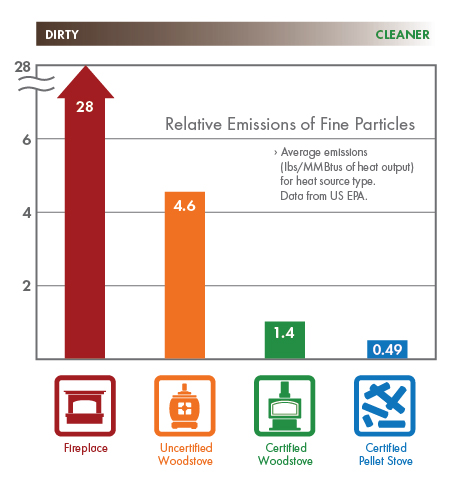Reducing emissions from residential wood burning is a high priority for the District, as multiple scientific studies show that prolonged inhalation of wood smoke has adverse impacts on human health. Prolonged inhalation of wood smoke contributes to lung disease, pulmonary arterial hypertension, and pulmonary heart disease, which can eventually lead to heart failure. Wood smoke has also been linked to oxidative stress and blood coagulation and can ultimately lead to cancer. Children with the highest exposure to wood smoke show a significant decrease in lung function.
Residents can be exposed to wood smoke inside their homes when they use their wood burning devices. Additionally, residents can be exposed to wood smoke when neighbors use wood burning devices due to smoke infiltration into homes nearby.
Please visit this EPA resource for more information.
